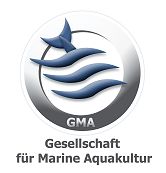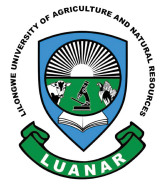The team
1. Fraunhofer Research Institution for Marine Biotechnology (EMB)

The Fraunhofer Research Institution for Marine Biotechnology (EMB) stands ready as a partner for developing new technologies, processes and instruments in the fields of aquaculture technology, cellular technologies, including fish cell cultures, stem cell research, cryoconservation technologies and cell-based medical and laboratory techniques. They are running the "German cell archive for wild animals Alfred Brehm-CRYO-BREHM", one of the largest collections of cell lines from wild animals in a deep-frozen stage. Concerning aquaculture technologies, the Fraunhofer EMB is focusing on land-based integrated aquaculture systems in fresh water and sea water. Current projects include the design, construction and application of a land-based recirculating integrated multitrophic aquaculture system for locally available species as well as the implementation of the thicklipped mullet in a co-culture system.
Dr. Marina Gebert is a molecular biologist with a background in fisheries science and has 8 years of experience with aquaculture, cell biology and cryopreservation. She is group manager of the Aquatic Cell Technology" group at the Fraunhofer EMB since 2008 and has participated and coordinated several projects during this time. She will be the main project manager of the present project and will supervise all work to be carried out at the EMB, i.e. cryopreservation of gametes and somatic cells as well as improvement of fecundity of O. karongae. She will be supported by to experienced scientists from EMB, who will carry out the laboratory work and a student assistant who will do legwork on broodstock maintenance and water chemistry monitoring. Furthermore, she will be involved in IAA and Aquaponics design as well as in planning the solar-powered hatchery.
2. Gesellschaft für marine Aquakultur (GMA)

The GMA - Association for Marine Aquaculture Ltd. was established in November 2004 as a non-profit private limited company (Ltd.). The GMA operates its own aquaculture research and development facility (recirculation systems) in Büsum, Northern Germany.
The main tasks are recirculation technology, including water treatment, biofiltration and energy efficiency, fish nutrition, including alternative plant raw materials and determination of nutritional requirements from macro- to micronutrients as well as larval rearing, experience in marine and freshwater finfish, crustaceans (shrimp, crayfish) and other invertebrates. The dedicated staff from GMA has long-term experience in the operation of aquaculture facilities and in the experimental rearing of fish and fish larvae. Specifically, Dr.Bernd Ueberschär is a fish biologist and an experienced senior scientist with more than 25 years background in larval fish research and digestive physiology in relation to aquaculture issues. He has participated in and coordinated a number of international projects with developing countries and countries in transition. He was founding member of FishBase and has created LarvalBase, the module of FishBase about the early stages of fish. He is an experienced teacher and accomplished a number of guest lectureships in third world countries. Dr. Bernd Ueberschär will be the major person in charge for all aspects on larval research and application in this project including the hatchery module in combination with the solar power plant. He will establish the technical framework for an Internet platform, including a public website and services to facilitate exchange of documents etc. among the project participants. He will also compile documentations and videos on larval rearing technology in relation to the project goals.
The technical staff from the GMA, who will be dedicated to support the experiments on larval rearing and broodstock maintenance and as well as with water chemistry monitoring is very experienced and reliable and will help to make the accomplishment of the tasks at the GMA a success.
3. Lilongwe University of Agriculture and Natural Resources, Bunda Campus, Aquaculture and Fisheries Science Department (LUANAR-AQF)

The aquaculture and fisheries science department offers teaching, research, consultancy and outreach services in all aspects of fisheries and aquaculture. It is a regional center of excellence in the sub-Sahara. It has staff and facilities to cater for research from engineering to social dimensions of fisheries, aquaculture and their related communities. Dr. Daud Kassam is a fish geneticist who has wide experience in fish breeding and will lead the genetic and fecundity improvement research. Dr. Joshua Valeta is an aquaculture systems engineer with considerable applied knowledge in fish hatchery systems. He will lead the aquaponics, IAA design and testing and hatchery temperature moderation studies in Malawi. Both have long experience in conducting research including participation in the ARDEP I and II projects funded by NORAD through the PCO at Bunda, Canadian, American and Scottish Governments and Organizations including RUFORUM, NEPAD (SANBio). The Department hosts the Regional Fish Node under the NEPAD agency. The department has a team of experienced professionals who will also assist with project where a need arises.
4. Lilongwe University of Malawi, Bunda College of Agriculture, Lilongwe, Department of Human Nutrition and Health (LUANAR-HNH)

The Human Nutrition and Health Department is one of the three departments in the Faculty of Food and Human Sciences at the Bunda Campus of LUANAR. The department offers teaching, research, consultancy and outreach services in human nutrition and health. It is a lead institution in nutrition studies and training in the country. The department offers training for community development workers, undergraduate and postgraduates in nutrition and health. It also leads in exploration of neglected foods such as nutritive local vegetables. Its researchers and research outputs are known worldwide. Ms. Zione kalumikiza is a public health nutritionist who has considerable experience in conducting community nutrition and health assessments. She will lead the nutritional and health status monitoring surveys and all nutrition related interventions such as nutrition education and care group coordination. She has been involved in various nutrition projects and surveys such as UNICEF funded Scaling Up Nutrition (SUN) project, GIZ funded GOPA project and a number of UNICEF funded Malawi Venerability Assessment Nutrition surveys among others. The department has also a team of professional specializing in various nutrition areas like child and maternal health, who will assist where necessary.
5. Lilongwe University of Agriculture and Natural Resources, Bunda Campus Department of Food Science and Technology (LUANAR-FST)

Food Science and Technology Department is one of the three departments in the Faculty of Food and Human Sciences at the Bunda Campus of LUANAR. The department offers teaching, research, consultancy and outreach services in food processing, food product development, value addition, food safety and food quality. The department actively participates in research and training of small holder farmers and small and medium enterprises (SMEs) in food processing and recipe development using its laboratory and food processing facilities at Bunda and in collaboration with other institutions. Over the years, the department has promoted utilization of various neglected food crops and through a number of trainings delivered to SMEs and rural families we have become familiar with food safety, food quality and food wastage problems due to lack of appropriate food processing techniques in Malawi and trainings have been tailored to address these problems. Mr. Aggrey Gama is a Food Technologist with wide experience in food processing technologies, product development, packaging and sensory evaluation of foods. He will lead in recipe development and testing, training beneficiaries in domestic as well as commercial food processing. He will also be one key player in the care group and innovation platforms. Over the last few years he has been involved in government and FAO sponsored capacity building initiatives in food processing for small and medium enterprises under OVOP. He has been involved in IITA sponsored soybean value chain project in Malawi which development of soybean based products, consumer acceptability and willingness to pay studies as well as product characterisation using both sensory methods and chemical analysis. He has also been involved in quinoa utilisation research involving product development and consumer acceptability studies. He is one of the food science experts identified by FAO in Malawi to help in quinoa postharvest management and utilisation capacity building initiatives in South and East Africa. The department has a pool of experts in Food Science and Technology fields like food safety, preservation and food microbiology who will also be available to help.
6. Quantum for Urban Agriculture and Environmental Sanitation (QUALIVES)

QUALIVES is a local non-government organization involved in research, consultancy and outreach. It brings together researchers from different disciplines of agriculture and allied sectors for specific tasks. It works closely with LUANAR researchers in agriculture, fisheries, community development, health and climate change. Its passion is to facilitate community transformation through enhanced agriculture-nutrition-health linkages. In this project, it will play a leading role in capacity building of farmers in the designing and implementation of the aquaponic IAA systems, and dissemination of the project technologies and products.
7. Innovative Fish Farmers Network Trust (IFFNT)

The Innovative Fish Farmers Network Trust (IFFNT) is a network of fish farmers that have been participating in aquaculture in Malawi, from their own initiatives and have been recognized as such as by Government and Development partners. The network was formed in 2003, with support from the Department of Fisheries and the Japanese International Cooperation Urgency. Innovative Fish Farmers Network Trust (IFFNT) is a legally registered innovative fish farmers’ organisation formed in 2005.
The network has over 1000 registered fish farmers across the country. The network fosters innovation by allowing fish farmers share innovations through, among others, facilitating farmer exchange visits, and access to extension and financial services. Currently, the network has a newly established secretariat facilitated by their key partner, the FishNode, which is a regional center for developing aquaculture under the New Partnership for Agriculture Development (NEPAD) of the African Union (AU). The farmers own integrated fish farms and implement innovative ideas, which if adequately supported have potential to grow to medium to large scale commercial aquaculture, thereby boosting fish production in Malawi. The IFFNT will play role in the identification of project farmers, needs assessment, formation and facilitation of the innovation platforms and their activities for the adoption and dissemination of the IAA and hatchery technologies and products.
